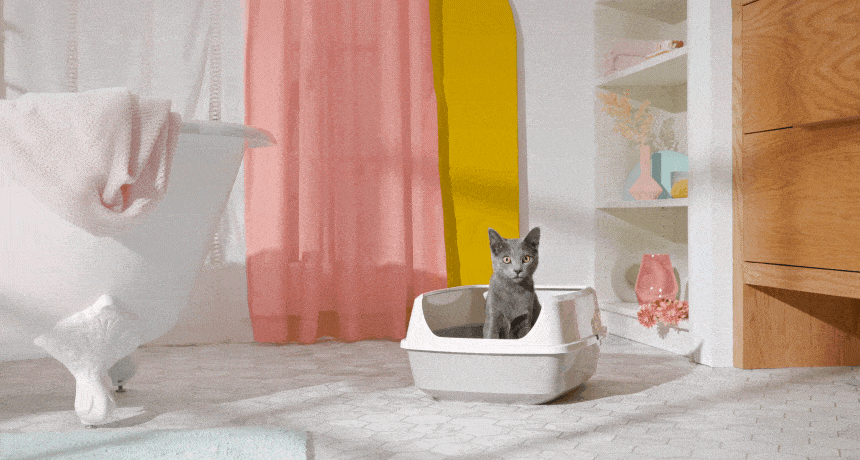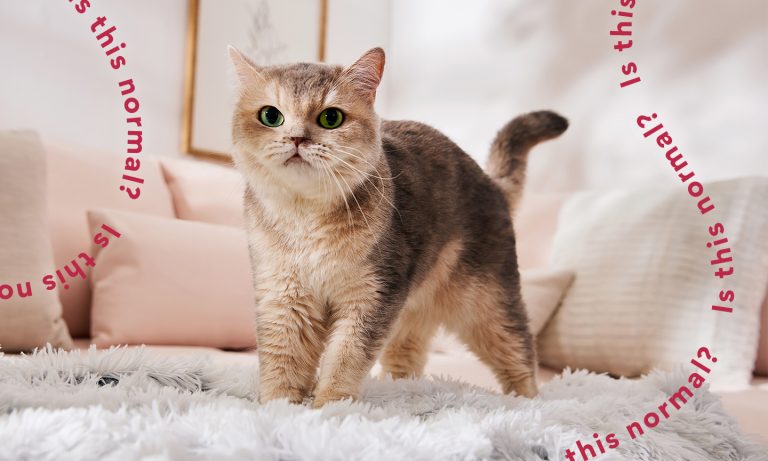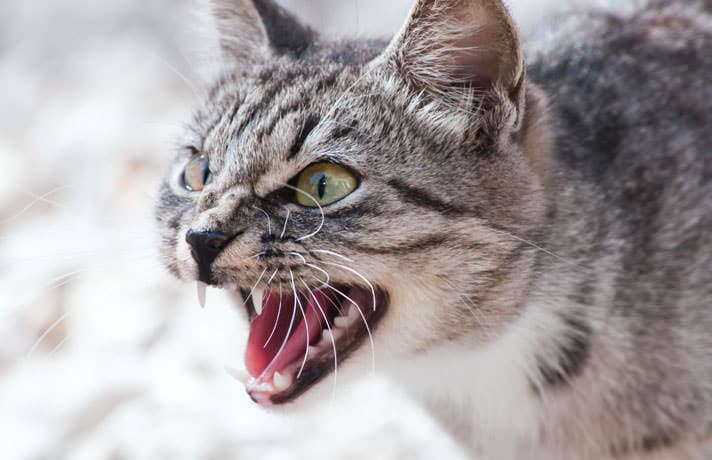Q:My cat runs out of his litter box as soon as he’s finished using it. Is that normal?
A: Yes, and it’s probably the equivalent of a human sighing with relief afterward. (Don’t make that face, you know you do it.)
If you’ve ever inadvertently paid attention to what your cat does during their bathroom breaks, (we’ve all accidentally MADE EYE CONTACT with them while they’re doing... that), you might’ve seen them run out of the litter box after they’re finished with it. Or maybe taking care of their bathroom business gives them cat “zoomies,” where they treat the entire house like their personal racetrack. So what gives?
That burst of energy might be because they feel like they’re No. 1 after going No. 2, according to Stacy Ferrara, CAFTP, CFTBS, a certified feline trainer and behavior specialist who owns Pawsitive Potential LLC in New York.
“It's most likely caused from just feeling better, lighter and able to conquer the next hunt comfortably,” she says. “Just as we humans have a feeling of relief from the experience, it's probably the same for cats.”
Another theory has to do with the fact that, in the wild, cats are both predators and prey. “The smell of feces and urine can attract predators [in the wild], so it would be natural to want to move away from that risk as quickly as possible,” Ferrara says.
Zoomies—whether post-litter box or just randomly—are a normal part of being a cat, too. “Cats are predators in every sense,” Ferrara explains. “They sleep for many hours to always be rested when the time comes for hunting. If your cat suddenly starts flying through the house, my guess would be it's happening at dawn or dusk when prime hunting would be done. It's a natural time for a boost of energy.”

Cats young and old engage in zoomies.
“Even older cats can get bouts of excitement,” says professional animal behavior specialist and author Alana Stevenson, M.S. “Social maturity in male cats is between the ages of 3-5 and for females, it is 2-4 years, so your cat may look like an adult but still be young with a lot of exuberance and playful energy. This is normal, and it’s best to accept and enjoy it!”
So while it may seem weird, cats running after using their litter boxes or getting the zoomies in general are normal behaviors, and there’s no need to worry. What you should pay attention to is if your cat stops using the litter box, acts like they’re trying to avoid it altogether or seems like they’re trying to hide out immediately afterward.
“Using a litter box is a natural behavior for a cat. When they’re not doing it, there’s a reason and we often have to play detective to figure out why,” Ferrara says. Possible causes for avoiding the litter box include urinary tract infections (UTI), severe constipation or dry stool—all of which would make going to the bathroom painful and, thus, Kitty may begin to associate the box with the pain. “They’ll run to be as far away as possible when they’re finished doing their business,” she says.
If your cat suddenly stops using the litter box or seems to avoid it, you should check in with your veterinarian to see what’s going on.
Other behaviors to watch for that could be cause for concern, according to Stevenson:
- Scooting across the floor or focusing on their hind end: These might be signs that your cat has an itch or irritation on their bottom (or they might have a bit of... you know... stuck to their fur).
- Scratching outside of the box, balancing half in and half out of the box, or not covering their waste: All are possible signs that the litter box is too small or dirty for the cat, or that they may not like the litter.
And as for the cat zoomies, Ferrara suggests keeping a log to see when your little predator tends to be super energetic, so you can give them some playtime when they’re the most active. “Look for patterns in the time of day, or whether it happens before or after eating,” she says. “Schedule your playtime for 15 to 20 minutes before that. This will help get the energy out constructively, before your cat finds a way on their own. It will also be more beneficial for their mental enrichment, and is bonding time with the human they love.”
Love us or not, they’d probably still prefer it if we didn’t lock eyes with them when they were, you know, in the middle of something important in their litter boxes.
Share:









